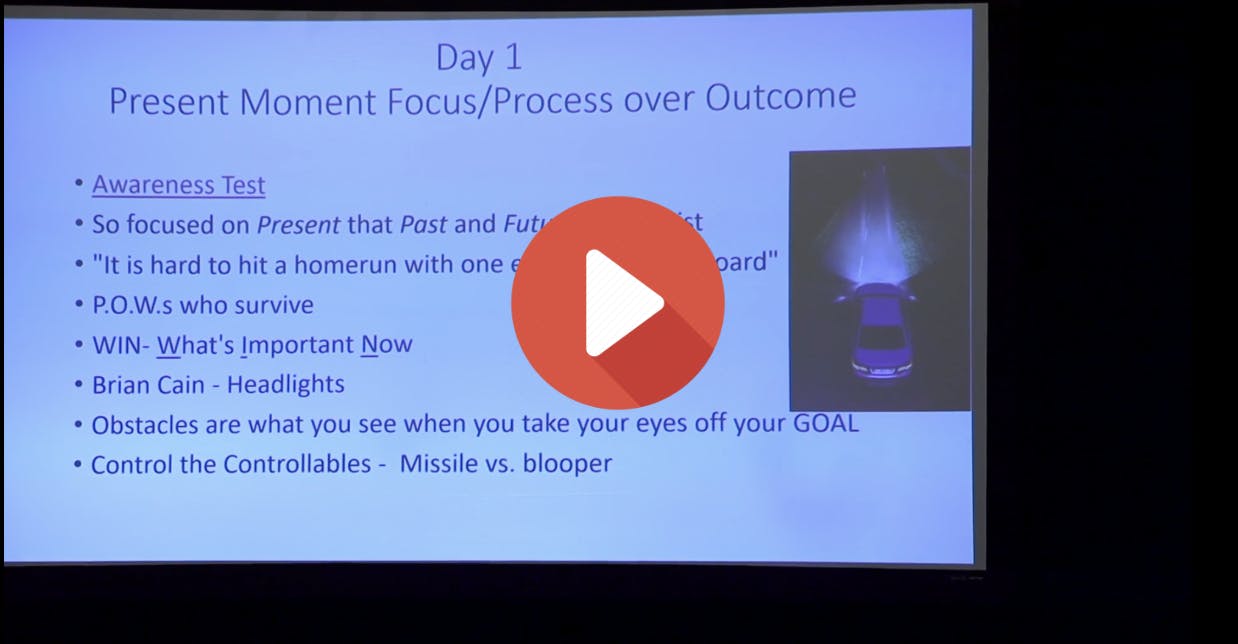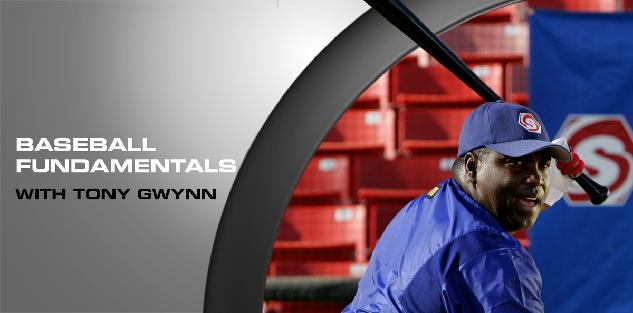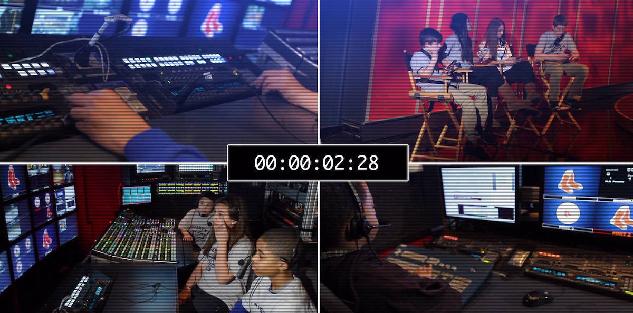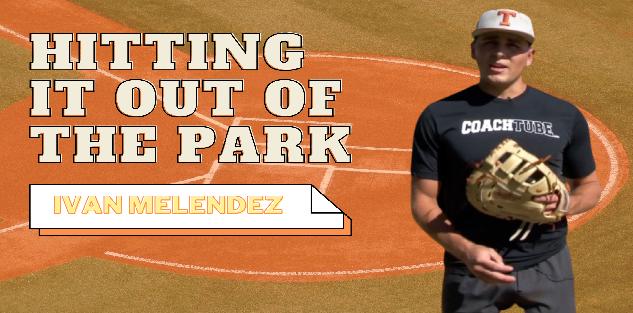Featured courses
- Understanding The Shift by Brandon Ogle
- Two Drills to Improve Outfield Movement and Communication by Grant Young
- The Ultimate Resource For Coaching Youth Baseball by Jackson Chlebowy
- Become a Master at Bunting by Brandon Ogle
- 5 Reasons Why There Is More To Good Base Running Than Just Speed by Brandon Ogle
- Three Injury-Prevention Tips For Your Offseason Pitching Program by Grant Young
- How to Teach Hitting to the Next Generation by Grant Young
- Developing Defensive-Minded Baseball Catchers by Grant Young
- 3 Baserunning Tips to Score More Runs in Baseball by Grant Young
- 5 Outfield Drills to Work on in Season by Alec Burris
- Keys For Scoring More With Runners on First and Third Base by Grant Young
- How to Develop Your Game to Become a Five-Tool Player by Brandon Ogle
- 3 Coaches Share the Keys to Running Baseball Practice the Right Way by Grant Young
- Four Drills to Sharpen a Baseball Hitter’s Vision at the Plate by Grant Young
- Four Quotes to Hit Better With Two-Strikes by Grant Young
- Four of Former MLB Pitcher Juan Nieves’ Movement-Based Pitching Drills by Grant Young
- Two Tips For Developing an Elite Baseball Bullpen by Grant Young
- Overcoming the Four Challenges of Indoor Baseball Practices Because of Weather by Grant Young
- Three Tips to Make Your Baseball Team Mentally Tougher by Grant Young
- Three Priceless Philosophies to Motivate Your Baseball Team by Grant Young
- Three Offseason Baseball Drills to Simulate Competition by Grant Young
- Three Baseball Offseason Strength and Conditioning Essentials by Grant Young
- Important Ways to Improve Your Baseball Team’s Baserunning by Grant Young
- Three Ways to Perfect Hitting Mechanics From an MLB Icon by Grant Young
- Catchers can influence pitchers...for bad or good by Drew Johnson
- Throwing Strikes and Playing Good Defense Equals Wins by Jose Ortiz
- Legendary Indiana Head Baseball Coach Bob Morgan’s Offensive Theory by Grant Young
- Tennessee Head Baseball Coach Tony Vitello on How to Practice Baserunning by Grant Young
- Three Great T-Ball Drills For Youth Baseball Players by Grant Young
- How to Manage a Baseball Pitching Staff by Grant Young
- Three Uncommon Tips to Become a Better Hitter by Grant Young
- How a Baseball Coach Can Develop Strike Throwers by Grant Young
- Drills to Develop Elite Baseball Outfielders by Grant Young
- Baseball Training Exercises to Strengthen Arm and Bat Speed by Grant Young
- How to Use Bunting to Score More Runs by Grant Young
- How To Build An Elite Baseball Infielder by Grant Young
- Three Drills to Improve Your Baseball Team's Infield Play by Grant Young
- Three Keys to Curating a Pitching Staff’s Success by Grant Young
- 3 Techniques to Develop a Baseball Player’s Hitting Approach by Grant Young
- How to Cultivate Confidence Within Your Pitchers by Grant Young
- 5 Every Day Drills To Help You Become A Better Catcher by tyler Linderman
- How to Throw A Curveball by Brandon Ogle
- How to Assemble a Lock-Down Bullpen by Brandon Ogle
- How to Throw a Sinker by Brandon Ogle
- How to be a Smart Baserunner by Brandon Ogle
- Improving a player's slugging average by Phillip Woolgar
- The 8 Fundamentals of Pitching by Drew Johnson
- How to Throw a Deceiving Changeup by Brandon Ogle
- Step Up Your Outfield Defense With These Three Drills by Jose Ortiz
- 8 Baseball Drills Every Player Should Practice by Drew Johnson
- How To Become An Elite Defensive Outfielder by Tyler Linderman
- 5 Tips For Crushing A Curveball by Johnny Grassi
- LEGENDS FOR YOUTH INCLUSION BASEBALL CLINIC by Phil
- Fourteen Ways To Turn A .300 Hitter Into A .210 Hitter by Jay P. Granat, Ph.D.
- How To Become The Ideal Leadoff Man by Brandon Ogle

Three Tips to Make Your Baseball Team Mentally Tougher
- By Grant Young
Baseball demands a lot of mental training because it is a game of failure and adversity. Unlike sports like basketball or soccer where a player might have multiple opportunities to score in a game, in baseball, even the best hitters fail to get a hit more often than not. The most common anecdote baseball players and coaches share to illustrate this is how a hitter who gets a hit around 30% of their at-bats as a professional will likely make it to the MLB Hall of Fame.
This means that players have to deal with a lot of failure and learn to cope with it mentally. Additionally, the game can be slow-paced, with periods of inactivity followed by intense moments requiring split-second decisions. This requires players to stay focused and mentally sharp throughout the game, which can be mentally taxing.
However, teaching mental toughness in baseball can be, well, tough for these reasons:
1. Many players come from a background where physical skill and talent are often emphasized over mental resilience.
2. Some players may have never been taught how to cope with failure, pressure, or adversity, so coaches and instructors face an uphill battle of not just imparting technical skills, but also reshaping players' attitudes and mental approaches to the game.
3. Each player may respond differently to various mental training techniques, so it can be challenging to find the right approach for each individual.
While there’s no one-size-fits-all solution to cultivating mental toughness within your baseball team, a good place to start is by heeding the wisdom that successful baseball coaches have utilized. This is why we’ve pulled three tried-and-true mental toughness tips from well-respected baseball coaches that they’ve used to win the mental war that every baseball player must battle.
Winning Mindset - Daily Affirmation
Winning Mindset was developed by former nationally ranked, All-Ivy League wrestlers, Gene and Jeff Zannetti to help individuals and teams reach their full potential in sports, school, and life. Gene and Jeff have studied the best athletes, coaches, teams & experts in the world to learn the secrets of performance success. Winning Mindset coaches have worked with thousands of athletes, teams, professionals & coaches.
In their ‘Baseball Mindset: Confidence Crash Course’ course, Jeff Zannetti explains the power of baseball players using daily affirmations, which are short phrases they’re saying to themselves on a regular basis in order to talk themselves up and inspire confidence.
Coach Zannetti goes on to say that boxing icon Muhammad Ali would say, “I’m the greatest of all time!” as his daily affirmation, which instilled the belief that he’d actually become the greatest.
The important part of affirmations is that they are simple, easy to remember, personalized to whatever goals the player wants to have for themselves, and phrased as if they’re going to happen, rather than the player merely wanting them to happen. If they want to be all-conference, then their affirmations — which can be either thought or spoken aloud — should say that they’re going to be all-conference. If they want to pound the strike zone, the affirmation should be centered on them doing just that.
Another good tip for this is to have players write their affirmations down and place them somewhere that they’ll be looking at often, such as a bathroom mirror or their locker, because actually seeing the affirmation written down will keep it top of mind.
Because mental toughness relies on being confident, this tip should be a must for all baseball players, regardless of what their stats may read.
Andy McKay - The Thought Process That Really Matters
Andy McKay is currently the Assistant General Manager of the Seattle Mariners. Before that, Coach McKay is currently Director of Player Development for the Seattle Mariners. He began his coaching career in 1993 at the University of Tampa where he helped coach them to a NCAA Division II National Championship.
In his ‘Coaching the Mental Game’ course, Coach McKay discusses how baseball is played in 15-second intervals because that’s typically how much time there is between pitches. Because of this, a player should renew their mental focus and fortitude every 15 seconds when they’re on the field in order to remain on track with their goal.
He then adds that mental toughness lives within those 15-second intervals. Similar to Winning Mindset’s aforementioned point, he discusses that there’s no difference between the mind and the body because the body is always going off of what the mind is telling it.
Coach McKay noted how the phrase, “muscle memory,” is a fallacy because it implies that the body can do anything without the mind’s help.
Therefore, the mental side of the game must be practiced and honed as much as the physical side, because the two can’t thrive without the other.
Pete Meyer - Control The Controllables

Pete Meyer is the Head Coach of the men's Baseball Team at Lisle High School in Illinois. In his ‘The Mental Game - Part 1 with Paul Babcock & Pete Meyer’, Coach Meyer and Coach Babcock discuss how they believe the three most important words in baseball are “control the uncontrollables”.
There are so many aspects to a baseball game that are out of a player’s control. Whether it’s the weather, the opposing pitcher, the score, the umpire, the crowd, or innumerable other factors, none of them are something a player can control in the moment — and all can take the players’ focus away from the task at hand.
Getting your team to understand this — and keeping them accountable to it by calling them out when complain about an uncontrollable — will build a resilient, focused, and mentally tough baseball team from the top down.



